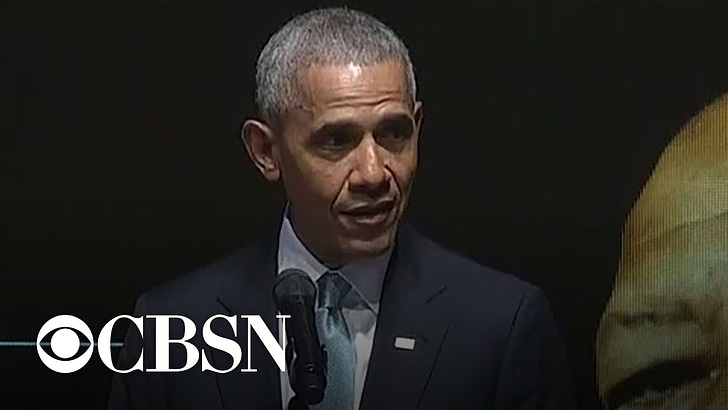Hello! And welcome to another edition of Inside The Newsroom. Today’s guest is… Jamil Smith, senior writer at Rolling Stone where he covers national affairs and culture. Jamil is one of the most prominent voices in America on race and politics, so I picked his brain on voter suppression and remembering the life of congressman Elijah Cummings, who sadly passed away last month. Both issues have shaped politics as we know it, so we got into the weeds of how to fix voting discrimination, as well as what legacy Cummings will leave behind. Below is a post-game of everything we discussed. Enjoy 💪
Please Like Me, Thanks
Before you read on, please like this edition of Inside The Newsroom by clicking the ❤️ below the title. That way I’ll appear in clever algorithms and more people will be able to read.
Elijah Cummings Wasn’t Done
The news of Elijah Cummings’ passing last month sent shockwaves through the political world. On both sides of the aisle, Democrats and Republicans attended Cummings’ funeral, which lasted for four and half hours due to the volume of people lining up to give eulogies. My favorite was from Barack Obama…
No matter how much Cummings achieved in his 23 years in congress — Cummings was sworn in in 1996 after winning a special election of Maryland’s 7th District — it still feels that his death, at 68 years of age, was premature. Whether it was standing up for police brutality in the aftermath of Freddie Gray’s death in his native Baltimore, or his role in the impeachment of Donald Trump, Cummings was as good as they come.


And he wasn’t done. As his widow Maya Rockeymoore Cummings, and Maryland Democratic Party chairwoman, said in her statement above, Elijah was working “until his last breath”, signing two subpoenas on his deathbed, both relating to the Trump administration’s policy change to temporarily end the ability for severely ill immigrants to seek care in the United States. Congressman Elijah Cummings left behind a gargantuan legacy that will take multiple people to replicate.
Racism Kills, Literally
It’s currently unknown what led to Cummings’ death, except “complications concerning longstanding health challenges," according to his office. What we do know is that Cummings faced the brutality of racism all his life, having first being attacked by a white mob for integrating a swimming pool in Baltimore when he was just 11 years old.
We also know that racism causes real health problems. According to a recent study, racism promotes genes that trigger inflammation, one of the major drivers of disease. This is just one reason why black Americans have a life expectancy at birth of 75.6 years, while white Americans are expected to live to 79.
April Thomas, University of Southern California
A Real-Life Purge
One of congressman Cummings’ biggest fights was against voter suppression, spearheading the House Oversight Committee and becoming a leading voice within the Democratic Party on several civil rights issues. Continuing that fight is Stacey Abrams, a relatively new face to the wider public who’s tipped to be a powerful voice within the Democratic Party for years to come. Abrams shot to fame after she lost by just 0.4 per cent, or less than 60,000 votes, to Republican Brian Kemp in Georgia’s race for governor in the 2018 midterms. The race was riddled with so many allegations that the House Oversight Committee, led by Cummings, launched an investigation into what really happened.
While the investigation is still ongoing, it was revealed recently that top Republicans in Georgia are continuing to use their power to suppress minority voters. In what is being ripped out of Kemp’s playbook, top officials in the state are investigating and issuing subpoenas to political opponents, without publicly showing evidence there was wrongdoing by those parties.
That’s where Abrams comes in. Instead of following top Democrats’ calls to run for president, Abrams launched a new national voting rights campaign, Fair Fight 2020, which aims to educate and protect voters of their rights. In some ways, Republicans understand black voters better than Democrats. While voter suppression laws aren’t as overt as they once were, individual red states now use more insidious methods carefully planned to make it harder to register and to cast a vote. In Georgia, some counties were left with just a single polling station, and it’s thought that almost 16 million Americans overall were removed from electoral register between 2014 and 2016.
Oliver Laughland, The Guardian
Which States Are Most Restrictive To Vote?
I was surprised to see that Virginia, a state Hillary Clinton won by more than five points, was among the most restrictive states in the country, but that can be explained by the majorities held by the Republicans in both the state House and Senate. Thanks to the fine folks at the Guardian US, you can find out how restrictive each state is.

Shelby County vs Holder
In 2013, the Supreme Court of the United States ruled in a 5-4 decision to strip away key protections of the Voting Rights Act, a staple in the country’s democracy since 1965. In the judgement, the SCOTUS ruled that Section 4 of the Voting Rights Act — the section that determines which states can change their voting laws without approval — was unconstitutional. Chief Justice John G. Roberts delivered the court’s opinion stating that “the Voting Rights Act of 1965 employed extraordinary measures to address an extraordinary problem,” suggesting that there’s now less need for voter protection.
The neutering of the Voting Rights Act has paved the way for more than half of the nation’s states to tighten their voter-ID laws, including most recently Arizona, Florida, Indiana, Tennessee and Texas.
Trump Visits Atlanta To Woo Black Voters
Donald Trump visited Atlanta last week to launch his campaign Black Voices For Trump, and unsurprisingly, it quickly turned into a circus. Sadly I’ve run out of words to describe the hypocrisy of the president when it comes to trying to attract minority voters, so I’ll let you watch for yourself…
Related Podcasts
#55 — Lindsay Gibb(Power Plays newsletter) on the overt sexism in college and professional sports
#51 — Jason Kander (Democratic Party) on why veterans have been left behind
#47 — Ryan Grim (The Intercept, The Young Turks) on the history of progressivism within the Democratic Party
Job Corner
Each week I’ll feature a selection of new journalism jobs. This week, the Texas Tribune announced several postings for their investigative unit project with ProPublica. They also have a bunch of student fellowships…














Share this post